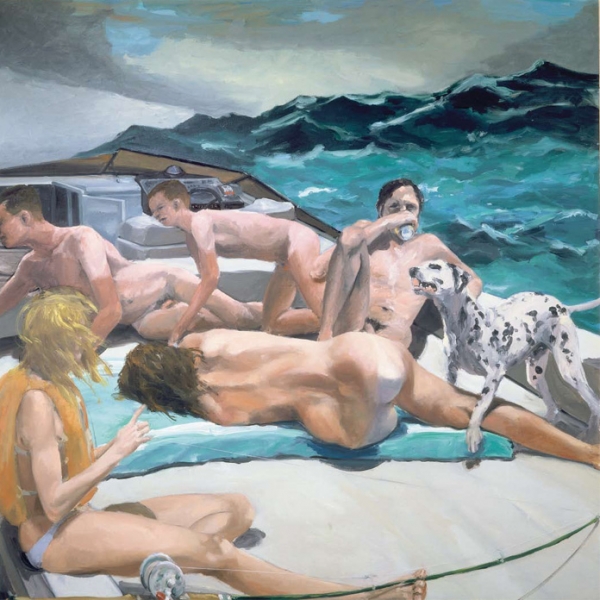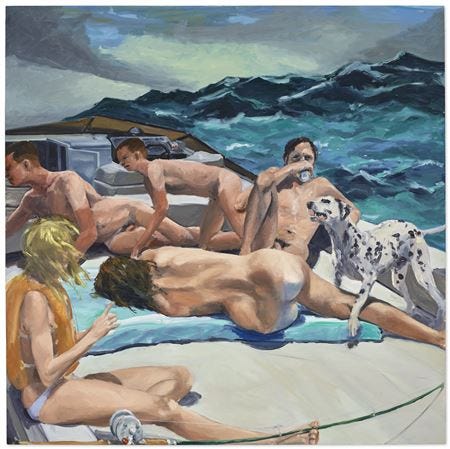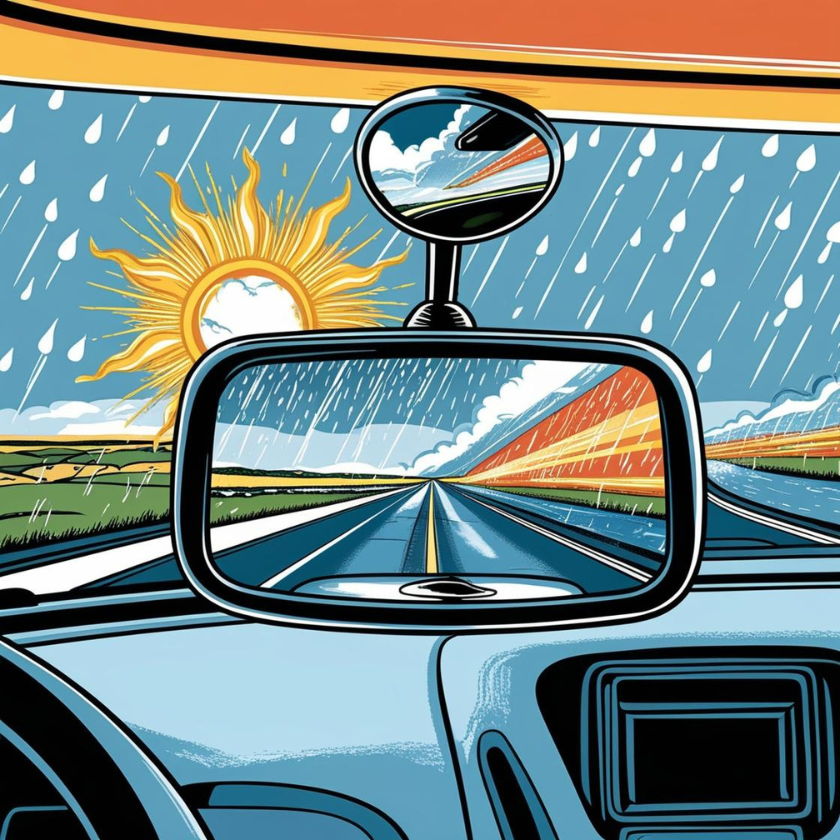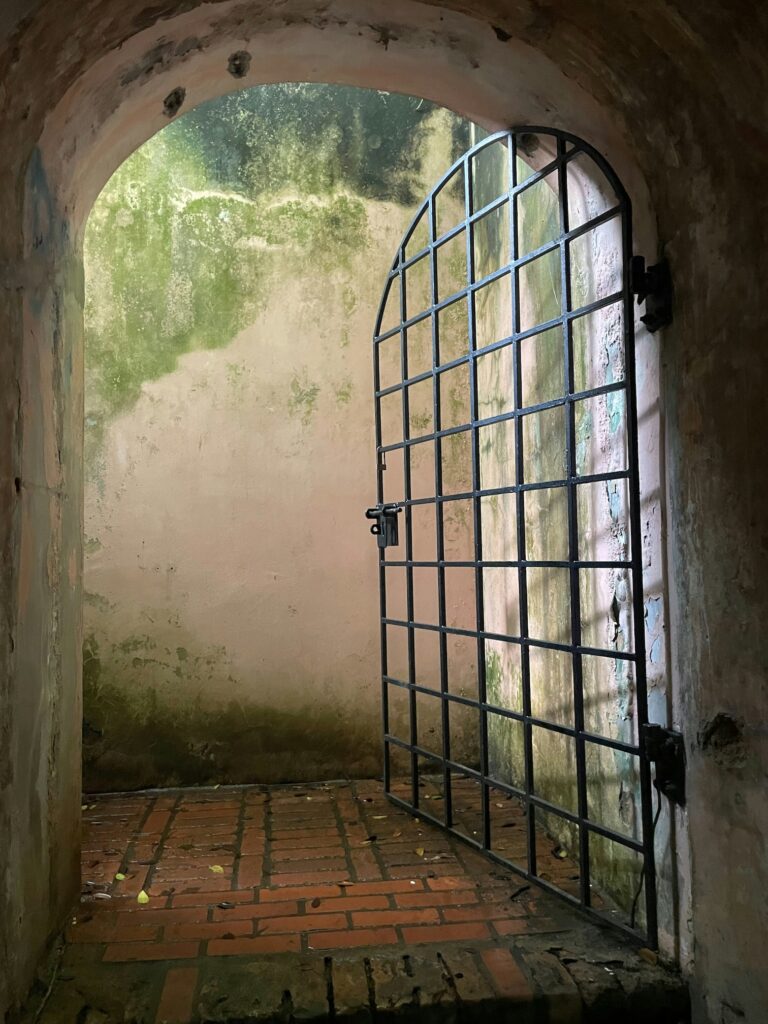Oh, Our Family Divas
Is your family’s arc slumping or soaring?
Take a good look at the Eric Fischl painting (above) and try not to get queasy.
Where does your eye go to in the painting? To the “old man” in the middle, right? The gravity of the scene collapses into him. What the hell is going on in his boat? Some homoerotic activity with the twin boys…and then there is the dalmatian getting a little too excited with the presumably passed out adult woman (wife and mother?). A storm is coming, and yet the father is chilled-out, naked and drinking his beer unfazed.
The daughter in the foreground–the only one clothed–nervous with a life preserver on, no less–is testing the fishing rod line. She’s the only one without tan lines. Underexposed.
Perhaps the daughter knows the storm is coming. Her sense of self-preservation has probably been finely tuned from years in this family with the father at center. The father? I bet he knows about the storm, too, but he’s not bothered. You get a sense that the weather reflects what is happening in his inner world.
But here’s the EVEN CREEPIER part:
Look at his eyes. Notice what he’s looking at?
That’s right. You. He’s looking right into your eyes. You’re there in the boat.
You are part of this bizarre scene, perched at the boat’s edge. Welcome to your family.
Your Family Arc
Family narratives rise and fall, like stock markets or empires. You can chart their trends over time. Some family therapists call this the “family arc.” Sometimes clients come to me and they can’t attribute their mood or self-worth struggle to anything in particular. It’s just there. Maybe it’s a chemical imbalance, they wonder.
They don’t really have intractable problems. Just a history of solutions that haven’t worked.
Some of these good folks are at the bottom end of a descending family arc. Whereas at one point in time the family story was robust with courageous, loving and dynamic characters, something(s) changed and the family narrative, either dramatically or ever so gradually, dulled.
Maybe a child died and the family couldn’t process the grief; or the family moved to a new town or city for work and lost contact with their vital family network; or a divorce that broke the spirit of the family; or the family turned themselves over to a rigid belief system; or whatever.
Family history cloaked in mystery only adds to the weight. I cannot count how many times I have heard this: I’m pretty sure something horrible happened to my mother when she was young but she never talks about it…and we don’t dare ask about it.
From my viewpoint, families in a descending arc have lost their creativity. Like artists who were once very productive and inspired but then lost their creative spark. The muse disappeared. They can’t connect with a robust, creative resource filled with enough play, stillness and healthy risk-taking to enliven the narrative. They just get by.
As you might imagine, lots of things contribute to the movement of a family arc, but not all things weigh equally. There is one factor, however, that outweighs the others.
The Family Diva
Some characters push the family plot more than others. In my family, we know about Blanche, the first female Mississippi River riverboat captain and my grandmother’s great aunt. Blanche chewed tobacco, gambled and packed six-shooters in an era when women were expected to, well, NOT do those things. I can’t remember what is fact or fiction now, but my sisters and I had all sorts of fun as kids spinning yarns about Blanche. We were, and are, her proud ancestors. Blanche raised our family arc and the strong women in the family often point to her.
Every family narrative has some divas. You know, the spotlight is on them. They have a disproportionate influence on the mood and movement of the family EVEN in their absence. My uncle’s sudden death at age twenty-two still lingers in my family–he was a dynamic and gracious man who almost certainly would have clean-and-jerked the family narrative to new heights.
Family divas may be highly-charged emotional characters or much lower-energy ones. Or both. Either way, they steer the family’s emotional ship, for good or bad…or both. The mood of the family bends around them, their gravitational pull inordinately powerful. They are epicenters. The others in the family generally organize themselves around the diva in order to follow or to avoid disrupting the diva. Families with an alcoholic diva parent know this quite well.
Family divas are archetypal.
I bet you know your family divas.
The Hidden Guiding Force
It can be sobering to discover how much influence the family diva has had on your life, for they have the power to determine what we notice and invest energy in. Take your partner, for example. How much of your decision to commit to them was driven by your experience of a family diva? Sometimes, we organize ourselves around our partners like we did to our family divas…and other times we choose the opposite of the diva, thinking we’ve escaped their pull.
The choice of partner matters less than some other critically important choices if you have a desire to elevate your family narrative. Here are a few ideas:
Become a truth teller. Beginning with yourself: are you (inadvertently) perpetuating family policies that lower the family arc? Like emotional avoidance or conflict avoidance? Family secrets, preserved in fear, fatigue the family arc. Find a way or find a person to whom you can shine light into the darkness.
Take responsibility. You may not be the family diva, but you play a part in the family arc. By the middle years, it’s your responsibility to tell the Old Man in the boat that you’re either not going for the ride or you’re turning the boat away from the storm.
Find your own compass. Find your energy source. Finding life stale or tiring, or having an inability to manage internal chaotic feelings, and/or fearing change are hallmarks of a family arc on the decline. Creating your own emotional power source is vital, so that you can plug into it independent of the diva’s influence and feel self-empowered.
When the Old Man Looks at You
The diva in your family may or may not be as creepy as the Old Man in this boat, but your existential moment remains the same. You’re the (only) one facing the storm. Now you have a choice: continue with the status quo or create new life.
Either way, there will be more storms to face. And Old Men don’t just vanish.
When I look at this painting, I imagine the Old Man lowering his beer, then saying to me: you’re never getting rid of me.
Try it: Look at the Old Man. Let him lower his beer as he looks at you. What does he say to you?
(Pause).
(Pause).
Whatever he says is what your unconscious needs you to hear. Now what will you do with it? What will you say back to him? Let this moment be the moment when you take hold of your end of the family arc and hoist it towards the light.
Me? What do I say back to him?
I’m going to love you anyway, you son-of-a-bitch.







